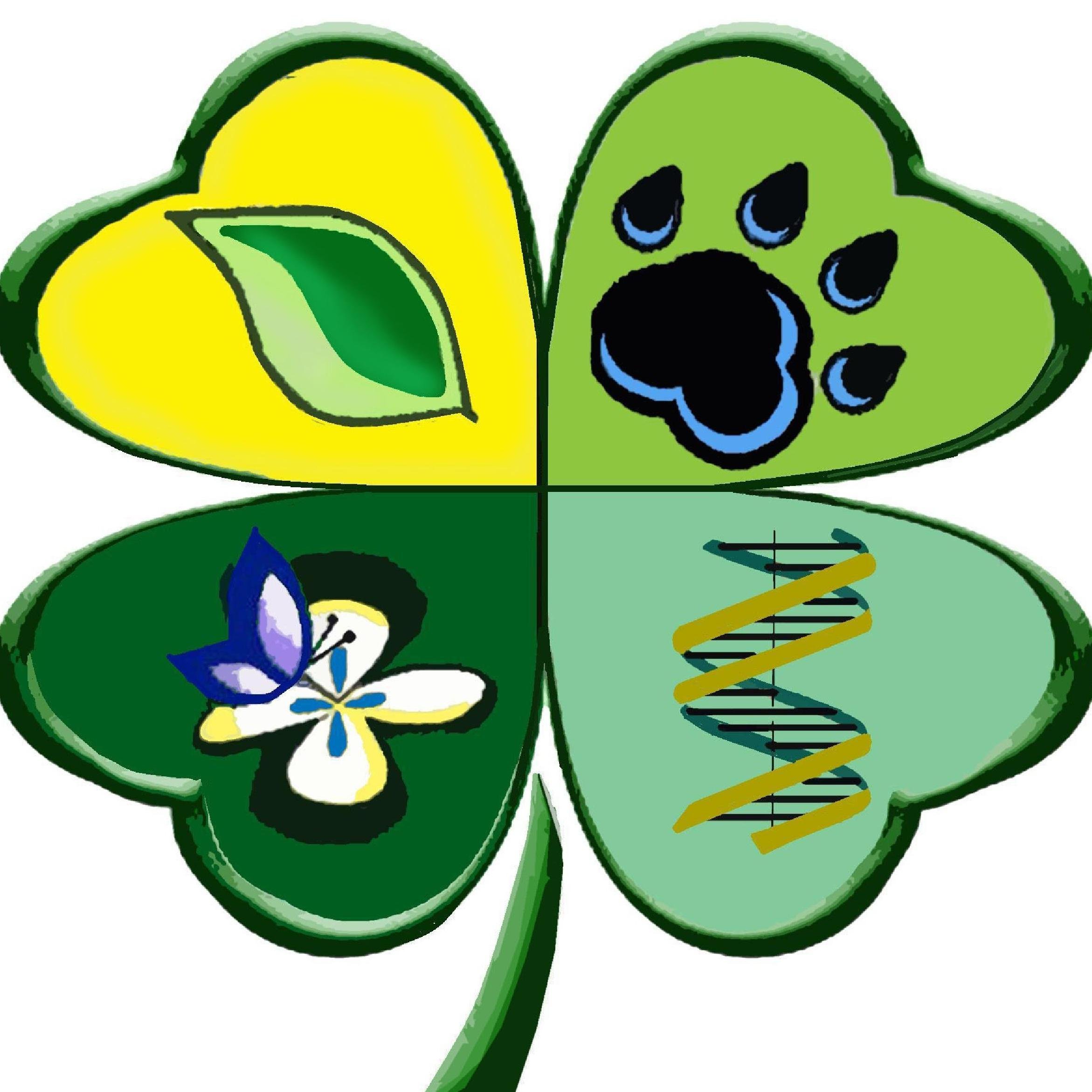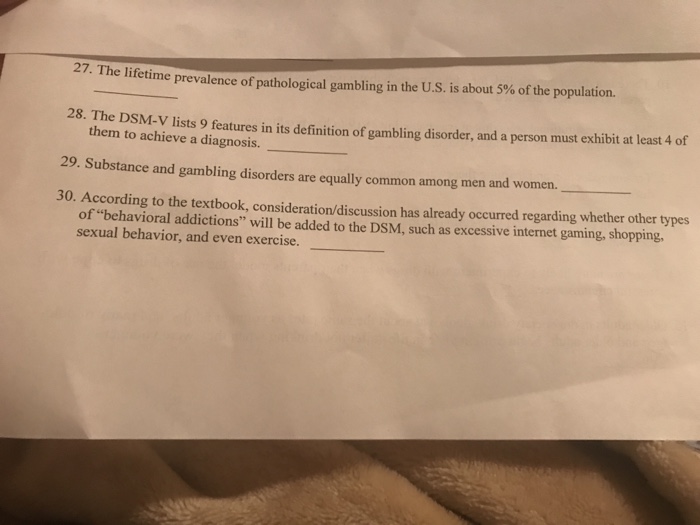Pathological Gambling Disorder Definition
Renaming: From PG to Gambling Disorder. Officially changing the name to “Gambling Disorder” is a welcome revision for many researchers and clinicians who have expressed concern that the label “pathological” is a pejorative term that only reinforces the social stigma of being a problem gambler. Pathological gambling disorder is an example of a process, or behavioral, addiction, as distinct from an addiction to such substances as food, drugs, tobacco, or alcohol. In process addictions, the characteristic “rush” or “high” comes from the series of steps or actions that are involved in the addictive behavior. The Definition of Gambling Disorder Gambling can be defined as any activity (e.g. A game of chance or skill) where an item of value is placed at risk in an attempt to gain something of greater value. Anyone involved in gambling activities has the potential to develop an addiction, however some individuals and groups are more at-risk. Four phases and four treatment steps have been identified in helping people better understand pathological gambling (also known as gambling addiction). The Four Phases in Gambling Addiction. Psychology Definition of PATHOLOGICAL GAMBLING: an impulse-control disorder marked by continual, maladaptive wagering, generating substantial interpersonal, occupational, or money-related troubles.
- Pathological Gambling Disorder Definition Dictionary
- Pathological Disorder Definition
- Pathological Gambling Disorder Definition Biology
- Pathological Gambling Disorder Definition Sociology
- Pathological Behavior Symptoms
- Pathological Gambling Disorder Definition Psychology
Compulsive gambling is being unable to resist impulses to gamble. This can lead to severe money problems, job loss, crime or fraud, and damage to family relationships.
Compulsive gambling most often begins in early adolescence in men, and between ages 20 and 40 in women.
People with compulsive gambling have a hard time resisting or controlling the impulse to gamble. The brain is reacting to this impulse in the same manner it reacts to a person addicted to alcohol or drugs. Although it shares features of obsessive compulsive disorder, compulsive gambling is likely a different condition.
In people who develop compulsive gambling, occasional gambling leads to a gambling habit. Stressful situations can worsen gambling problems.
People with compulsive gambling often feel ashamed and try to avoid letting other people know about their problem. The American Psychiatric Association defines pathological gambling as having 5 or more of the following symptoms:
- Committing crimes to get money to gamble.
- Feeling restless or irritable when trying to cut back or quit gambling.
- Gambling to escape problems or feelings of sadness or anxiety.
- Gambling larger amounts of money to try to make back past losses.
- Losing a job, relationship, education, or career opportunity due to gambling.
- Lying about the amount of time or money spent gambling.
- Making many unsuccessful attempts to cut back or quit gambling.
- Needing to borrow money due to gambling losses.
- Needing to gamble larger amounts of money in order to feel excitement.
- Spending a lot of time thinking about gambling, such as remembering past experiences or ways to get more money with which to gamble.
A psychiatric evaluation and history can be used to diagnose pathological gambling. Screening tools such as the Gamblers Anonymous 20 Questions www.gamblersanonymous.org/ga/content/20-questions can help with the diagnosis.
Treatment for people with compulsive gambling begins with recognizing the problem. Compulsive gamblers often deny they have a problem or need treatment.
Most people with pathological gambling only get treated when other people pressure them.
Treatment options include:
- Cognitive behavioral therapy (CBT).
- Self-help support groups, such as Gamblers Anonymous. Gamblers Anonymous www.gamblersanonymous.org/ is a 12-step program similar to Alcoholics Anonymous. Practices used to treat other types of addiction, such as substance use and alcohol use, can also be helpful in treating pathological gambling.
- A few studies have been done on medicines for treating compulsive gambling. Early results suggest that antidepressants and opioid antagonists (naltrexone) may help treat the symptoms of pathological gambling. However, it is not yet clear which people will respond to medicines.
Like alcohol or drug addiction, pathological gambling is a long-term disorder that tends to get worse without treatment. Even with treatment, it's common to start gambling again (relapse). However, people with pathological gambling can do very well with the right treatment.
Complications may include:
Pathological Gambling Disorder Definition Dictionary
- Alcohol and drug use problems
- Anxiety
- Depression
- Financial, social, and legal problems (including bankruptcy, divorce, job loss, time in prison)
- Heart attacks (from the stress and excitement of gambling)
- Suicide attempts
Getting the right treatment can help prevent many of these problems.
Call your health care provider or mental health professional if you believe you have symptoms of pathological gambling.
Exposure to gambling may increase the risk of developing pathological gambling. Limiting exposure may be helpful for people who are at risk. Intervention at the earliest signs of pathological gambling may prevent the disorder from getting worse.
Gambling - compulsive; Pathological gambling; Addictive gambling
American Psychiatric Association website. Non-substance-related disorders. In: American Psychiatric Association. Diagnostic and Statistical Manual of Mental Disorders. 5th ed. Arlington, VA: American Psychiatric Publishing. 2013:585-589.
Balodis IM, Potenza MN. The biology and treatment of gambling disorder. In: Johnson BA, ed. Addiction Medicine: Science and Practice. 2nd ed. Philadelphia, PA: Elsevier; 2020:chap 33.
Weissman AR, Gould CM, Sanders KM. Impulse-control disorders. In: Stern TA, Fava M, Wilens TE, Rosenbaum JF, eds. Massachusetts General Hospital Comprehensive Clinical Psychiatry. 2nd ed. Philadelphia, PA: Elsevier; 2016:chap 23.
Updated by: Fred K. Berger, MD, addiction and forensic psychiatrist, Scripps Memorial Hospital, La Jolla, CA. Also reviewed by David Zieve, MD, MHA, Medical Director, Brenda Conaway, Editorial Director, and the A.D.A.M. Editorial team.
What is gambling addiction, and how is it defined?
Over the past few decades, health professionals have discussed and debated the definition of various terms associated with problem gambling. Diagnostic phrases have varied from “pathological gambling” and “compulsive gambling” to “gambling addiction” and the latest diagnosis, “disordered gambling,” and the criteria for being diagnosed as having an addiction or being at-risk have changed along the way, as well.
In 2013, the fifth edition of the American Psychiatric Association’s Diagnostic and Statistical Manual of Mental Disorders (DSM) was published. Mental health providers look to the DSM for diagnostic criteria they use when working with insurance providers for treatment reimbursement.

Gambling Disorder in the DSM-5
The condition previously named pathological gambling was renamed gambling disorder and classified in the category “Substance-Related and Addictive Disorders.” Prior to the publication of the DSM-5, the condition was categorized as an impulse control disorder.
Another significant change to the definition and diagnosis of gambling disorder was the removal of one of the criteria for diagnosing gambling disorder. The criterion, “has committed illegal acts such as forgery, fraud theft or embezzlement to finance gambling” is no longer one of the criteria used for diagnosing gambling disorder. While it is true some individuals may have done illegal acts to gain access to money, it does little to help diagnose whether or not someone has the disorder.
Finally, the number of symptoms that must be identified to diagnose a gambling disorder has been lowered from five to four. This was done with the intention of decreasing the instances that a problem gambler’s disorder goes undiagnosed and therefore without help.

Pathological Disorder Definition
How The Changes in the DSM Help Problem Gamblers
Pathological Gambling Disorder Definition Biology
At KnowTheOdds, we want to make sure people get the help they need. We must be able to properly diagnose individuals and guide them appropriately to opportunities for recovery.
The official definition of gambling disorder allows problem gamblers to understand that their addiction is something that affects millions of people – they are not alone in dealing with its consequences, and it is not their fault. The DSM-5 recognizes gambling disorder as a critical problem similar to drug and alcohol addictions, with the same affects on the individual.
Pathological Gambling Disorder Definition Sociology
If you or someone you know has a gambling disorder, help is available, and recovery is possible. Read stories of individuals who have recovered in “The Faces of Problem Gambling” and find hope.
Pathological Behavior Symptoms
